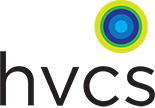
- This event has passed.
HIV and Hepatitis C Coinfection
11/21 @ 1:00 pm - 4:00 pm
† 3 OASAS credits (not approved for initial CPS credentialing); ‡ 4 CNE hours
More than 25% of people living with HIV in the United States are coinfected with Hepatitis C virus (HCV). Among people who acquired HIV as a result of injection drug use, the rates of HIV/HCV co-infection may be as high as 90%. HCV screening is recommended for persons infected with HIV. Health and human services providers who work with people living with HIV need updated information about HIV/HCV coinfection in order to provide effective services to their clients. As a result of this half-day training, participants will be able to: recall basic information about the liver and hepatitis C, including transmission, prevention, course of illness, screening and treatment; counsel their HIV-positive clients about the importance of knowing their HCV status; describe how coinfection with HIV and HCV affects the progression of each disease; recall current trends and improvements in treatment for people who are coinfected with HIV and HCV; and list at least three additional service needs of people with HIV who are also coinfected with HCV.
Prerequisite: Although there is no prerequisite for this training, it is strongly recommended that participants have previous training in HIV/AIDS.
Audience: All health and human services providers including: nurses, HIV/STD counselors, substance abuse counselors, case managers, case management technicians, prevention specialists and outreach workers.
Fall 2011 Dates: November 21, 2011 (1pm-4pm) Hawthorne


